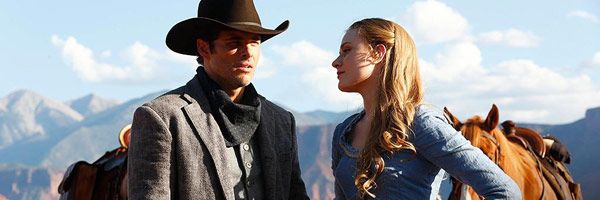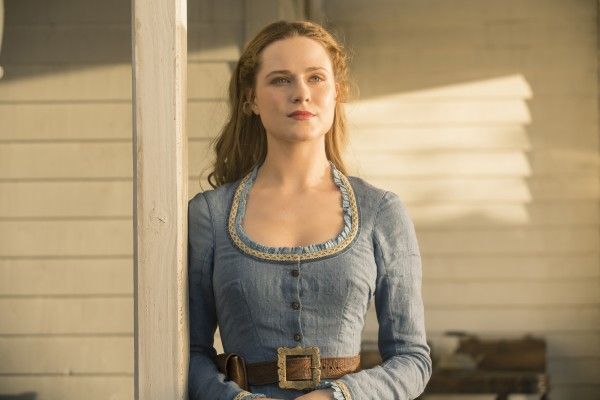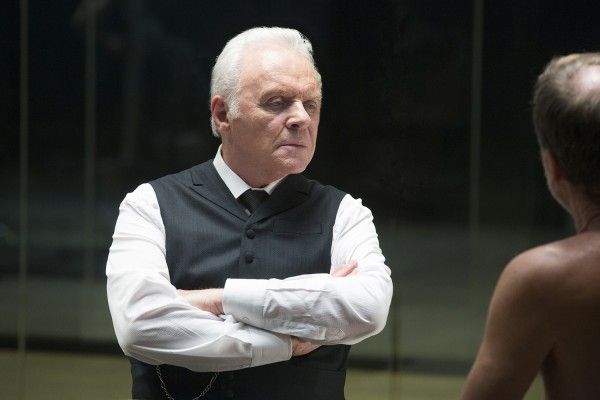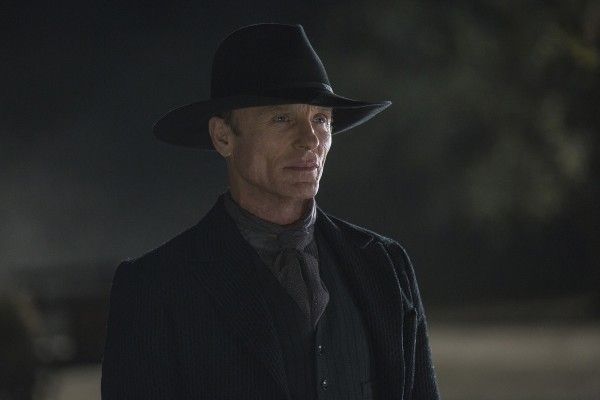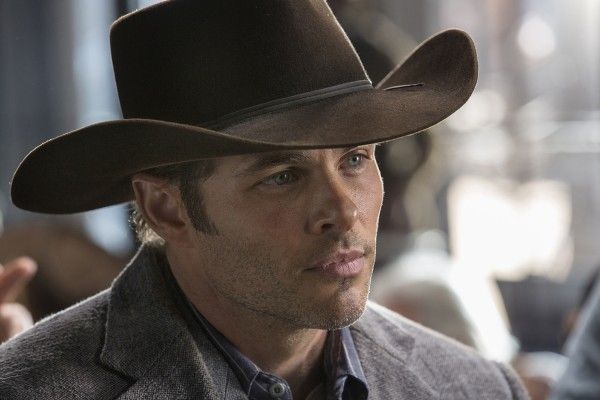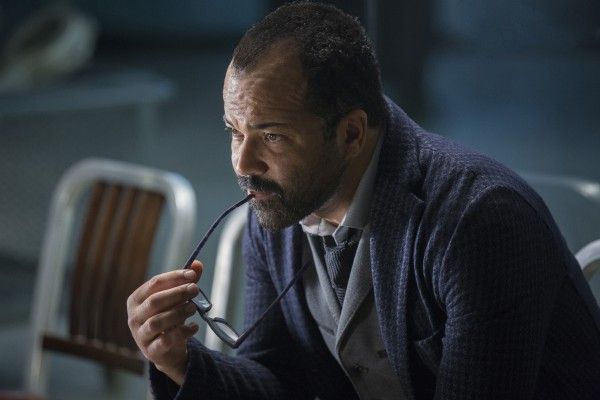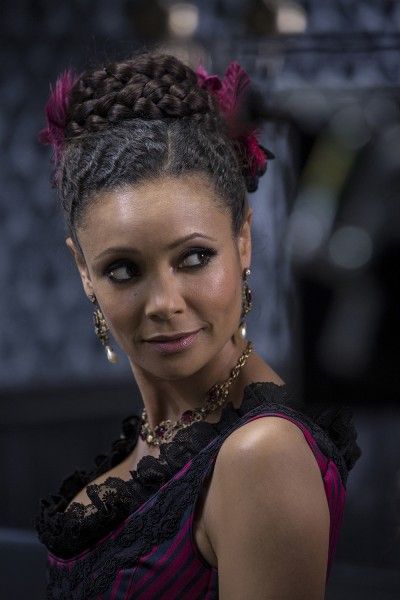In the second episode of HBO’s new drama epic Westworld, a crass guest (played amusingly by Ben Barnes) tells his straight-laced companion (Jimmi Simpson), “I know you think you have a handle on what this is: guns and tits. But you have no idea.” It’s a perfect description of the series, which gained a fascinated following after reports of extreme violence and nudity, not to mention a comfort with genital touching being a requirement for extras. Westworld is set up as a place of pure fantasy, but typically it plays to humanity’s darker nature. People drink, kill, and fornicate with joyful abandon. The more depraved the storylines in the park, the more people feel thrilled by it. As another character declares early in the series: “Hell is empty. All the devils are here.”
Westworld has been touted as HBO’s next Game of Thrones, something the premium network is surely hoping is the case after a crop of lackluster dramas in what used to be marquee spots on its schedule. The series was plagued by delays which naturally led to speculation and uncertainty, but whatever issues it had aren’t noticeable now. The premiere is sweepingly seductive before letting the story slow down in its third and fourth hours to deeply consider the philosophy of such a place, and the show is better for it.
For those who are unfamiliar with the setup, Westworld (based on one of the parks in Michael Crichton’s 1973 film of the same name) is a place where — for a mere $40k a day — you can live out your dreams. The park is populated by lifelike androids, called hosts, who wake up each day in a narrative loop, one which allows for improvisation based on the needs of the guests (also called “newcomers”). The stories are vast and interconnected; characters don’t just come to life when you are nearby, but instead, guests are part of a living story. Hosts cannot kill guests, although they can kill each other, and guests can also kill hosts. One of the story writers laments that everything works as it should, “unless a guest decides they want to kill or fuck something.”
The “thing” part of that statement is key, and one of Westworld’s most major themes, like the series Humans or the film Ex Machina, is what makes a "thing" become a human? What is the nature of consciousness, and is it possible for robots to have it?
What helps make that truly come to life, pun partially intended, is the calibre of the cast. Evan Rachel Wood, Thandie Newton, and Angela Sarafyan are three hosts who imbue their characters with soul while still teetering on the edge of the Uncanny Valley. The repetitions and the lifelike, but not fully human motions and reactions make us feel uneasy yet empathetic towards them. Simpson’s cautious, curious character struggles to figure out who is real and who is isn't, and a host replies, “if you can’t tell the difference, does it matter?”
That question can land two ways — either you dehumanize everyone, or you give everyone a soul. Though Westworld seemed marketed for titillation (and there is a fair amount of nudity), it’s rarely sexy. Bodies are simply flesh, some of which is manipulated by others, some of which does the manipulating. It’s only in the quiet moments, like when AI programmer Bernard (Jeffrey Wright) or the park’s creative director (Anthony Hopkins) question their creations and try to get into their minds to uncover what is programmed and what is something beyond that we start to see humanity, and often more so from the hosts than anyone else.
In a telling scene, Hopkins (who is exceptional, as always, as is Wright) explains to one of the story creators that the guests don’t come to find themselves, but to see who they want to be. At the beginning of the experience guests are given a choice of a white hat or a black hat, even though of course nothing is that simple inside Westworld or outside of it. (Although Ed Harris’ Man in Black seems pretty unabashedly evil. His quest to find the game’s central maze is also one that doesn’t yet feel as compelling as the rest of the story yet, but will surely equal another tantalizing layer soon).
The series -- with a solid logical foundation and world-building -- is lovingly crafted, marrying its Wild West aesthetic with cold sci-fi elements of the labs that run the park in a way that feels believably connected. The hosts brawl in a saloon at one point in the day, and at night, they are powered down and thrown into a glass chamber to have the blood hosed off and their wounds repaired. The series even broaches philosophical musings, a la Eternal Sunshine of the Spotless Mind, as to whether it would be better to live a safe life where our pain is erased, or a life of free will with all of its mistakes and hurt. The choice is not always clear.
Like Game of Thrones, Westworld is a sprawling story, but it’s never as disparate as the world of Westeros and what lies beyond the Narrow Sea. What matters here is the notion that everything is contained, intimate, and carefully crafted, and fans of Crichton will immediately feel the familiarity with his most famous stories' themes: where what we overly-confident Homo sapiens create and try and control quickly spirals out beyond our abilities. We are not gods, only tinkerers, and the characters of Westworld are starting to learn that trying to control what we don't understand can lead to catastrophic effects. Thus, a rebellion must now be faced. "These violent delights have violent ends."
Rating: ★★★★ Very good
Westworld premieres Sunday, October 2nd on HBO

